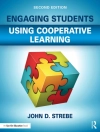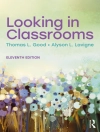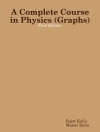Two major regulatory activities have framed global media policies since World War II: the New World Information and Communication Order (NWICO) and the more recent World Summit on the Information Society (WSIS). Through extensive research and testimonies from those involved, this book presents an in-depth account from the 1970s to today of the major issues concerning information flow in international geopolitics, including a look at the negotiations surrounding the major policy debates. Few studies of NWICO and WSIS have considered the continuity between the two activities – or included in the debate the crucial intermediary period between – and this book provides new insight into an issue of multilingual and multicultural importance.
Table of Content
Introduction
PART I: On the Agenda: NWICO
Correlations between NWICO and Information Society: Reflections of a NWICO actor – Mustapha Masmoudi
The history of NWICO and its lessons – Kaarle Nordenstreng
NWICO: Reuters’ Gerald Long versus UNESCO’s Seán Mac Bride – Michael Palmer
IPS, an alternative source of news: From NWICO to civil society – Patricio Tupper
New scenarios for the Right to Communicate in Latin America – Gustavo Gonzalez Rodriguez
Past witnesses’ present comments – Hıfzı Topuz
PART II: Shifting Sands
The Right to Communicate – A continuing victim of historic links to NWICO and UNESCO? – Alan Mc Kenna
‘Going Digital’: A historical perspective on early international cooperation in informatics – Julia Pohle
ICTs, discourse and knowledge societies: Implications for policy and practice – Robin Mansell
Past witnesses’ present comments – Alain Modoux
PART III: Changing the agenda: WSIS and the future
Towards Knowledge Societies in UNESCO and beyond – J.P. Singh
The notion of access to information and knowledge: Challenges and divides, sectors and limits – Jérémie Nicey
The international news agencies (and their TV/multimedia sites): The defence of their traditional lead in international news production – Camille Laville and Michael Palmer
The least imperfect form of global governance yet? Civil society and multi-stakeholder governance of communication – Jeremy Shtern, Normand Landry and Marc Raboy
Civil society and the amplification of media governance, during WSIS and beyond – Divina Frau-Meigs
Past witnesses’ present comments – Bertrand de La Chapelle
PART IV: Postface
From New International Information Order to New Information Market Order – Roberto Savio
About the author
Patricio Tupper is professor of media and communication sciences at the University of Paris 8.












